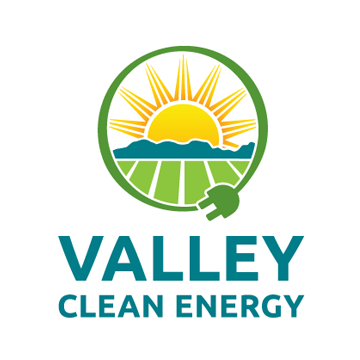In a disappointing decision, the California Public Utilities Commission (CPUC) recently voted to approve increases to the “exit fees” charged to Valley Clean Energy (VCE) customers by PG&E. Valley Clean Energy is our official locally governed electricity provider, bringing cleaner energy at competitive rates to Davis, Woodland, and unincorporated Yolo County. It began serving 55,000 customer accounts this past June.
The decision by the CPUC to raise the exit fee affects all 19 community choice aggregation (CCA) programs in the state, including VCE.
The exit fee is called the Power Charge Indifference Adjustment, and if you are a VCE customer, you will see it on your PG&E bill. This fee is charged by each of the utilities to all CCA customers to compensate for electricity generation they built or contracted for in past years.
Valley Clean Energy believes a reasonable exit fee is fair as long as these costs are shared equitably by all PG&E and CCA generation customers. Unfortunately, we don’t find this recent ruling by the CPUC to be fair. It over-compensates PG&E for past investments and leaves out reasonable cost-control measures that would hold the utility accountable for its past business decisions. Not only did the CPUC allow the utilities to include these costs in the exit fee, they did so before even considering whether they were reasonable. What is even more puzzling is why the CPUC took this action against the advice of their own expert Administrative Law Judge who had studied the issue for a year and held extensive hearings where evidence was provided by all sides—including representatives for VCE.
The end result of the CPUC ruling is an exit fee formula that will increase the amount of money PG&E will get from CCA customers by tens of millions of dollars in 2019 alone. The scale of the new fees and the lack of effort by the CPUC to mitigate costs mean that CCAs are facing significant financial challenges—with parallel threats to California’s renewable energy goals— despite having lower overhead costs than the investor owned utilities.
Valley Clean Energy’s share of the additional annual exit fee costs in 2019 are about $3.5 million dollars. This financial hit has forced your VCE Board of Directors to make some challenging decisions to help manage program costs wisely while meeting VCE’s long-term goals of service to the communities it serves. Those difficult decisions include staffing cost reductions, delaying enrollment of solar customers, and adjusting electricity rates to be at parity with PG&E’s prices.
It’s disappointing to make these program adjustments so early in the game, but take heart — there are experienced industry organizations, lobbying groups, and 19 CCA programs across the state representing over 160 cities and counties that are fighting hard to reverse this decision. Should we succeed, VCE will act quickly to reinstate the customer advantages that were originally offered.
In the meantime, remember that VCE is a not-for-profit public energy program that has been created by our communities to benefit all of us. VCE, together with the other CCA programs operating successfully across the state of California, are already saving their customers millions of dollars a year, reducing greenhouse gas production by tens of millions of tons, and creating jobs as they contract for and build renewable energy facilities in California.
California CCA’s are buying and building renewable energy faster than any other type of electric provider in the State, but changing the status quo in a fossil fuel-based economy is a pretty big deal—nobody said it was going to be easy. And even though our growing pains have set in earlier than we would have liked, VCE’s dedication to comprehensive community benefits remains, including:
- Local control: The VCE board — composed of elected officials from Davis, Yolo County and Woodland — make decisions with the benefit of their constituents in mind as opposed to Wall Street. We welcome your opinions at our public meetings. Consider joining us when you can.
- Energy choice: VCE ends the electricity monopoly, offering a choice of electricitygeneration providers and an option to opt up to 100% renewable energy, or to opt out.
- Sustainability: VCE provides higher levels of renewable energy. Our current portfolio is 42% renewable compared to 33% for PG&E. We will strive to go higher in the years ahead.
- Reinvestment in the community: Net revenues will be reinvested in the community in the form of energy projects and programs, including local renewable generation, energy storage, electric vehicle infrastructure, and/or energy efficiency.
- Competitive rates: We strive to be competitive with the electricity-generation rates offered by PG&E.
The latest update on PG&E’s “exit fee” will be discussed at Valley Clean Energy’s next Board meeting, at 5:30 p.m. Thursday, Dec. 13, in the Community Chambers at Davis City Hall, 23 Russell Blvd. Unlike the investor owned utilities, our Board meetings are public – you’re welcome to attend.
Regular Board meetings are on the second Thursday of the month from 5:30 to 7:30 p.m. The meeting location alternates between Davis City Hall and the Woodland City Council Chambers, 300 First St. in Woodland.
Please visit our website for additional information at valleycleanenergy.org.

